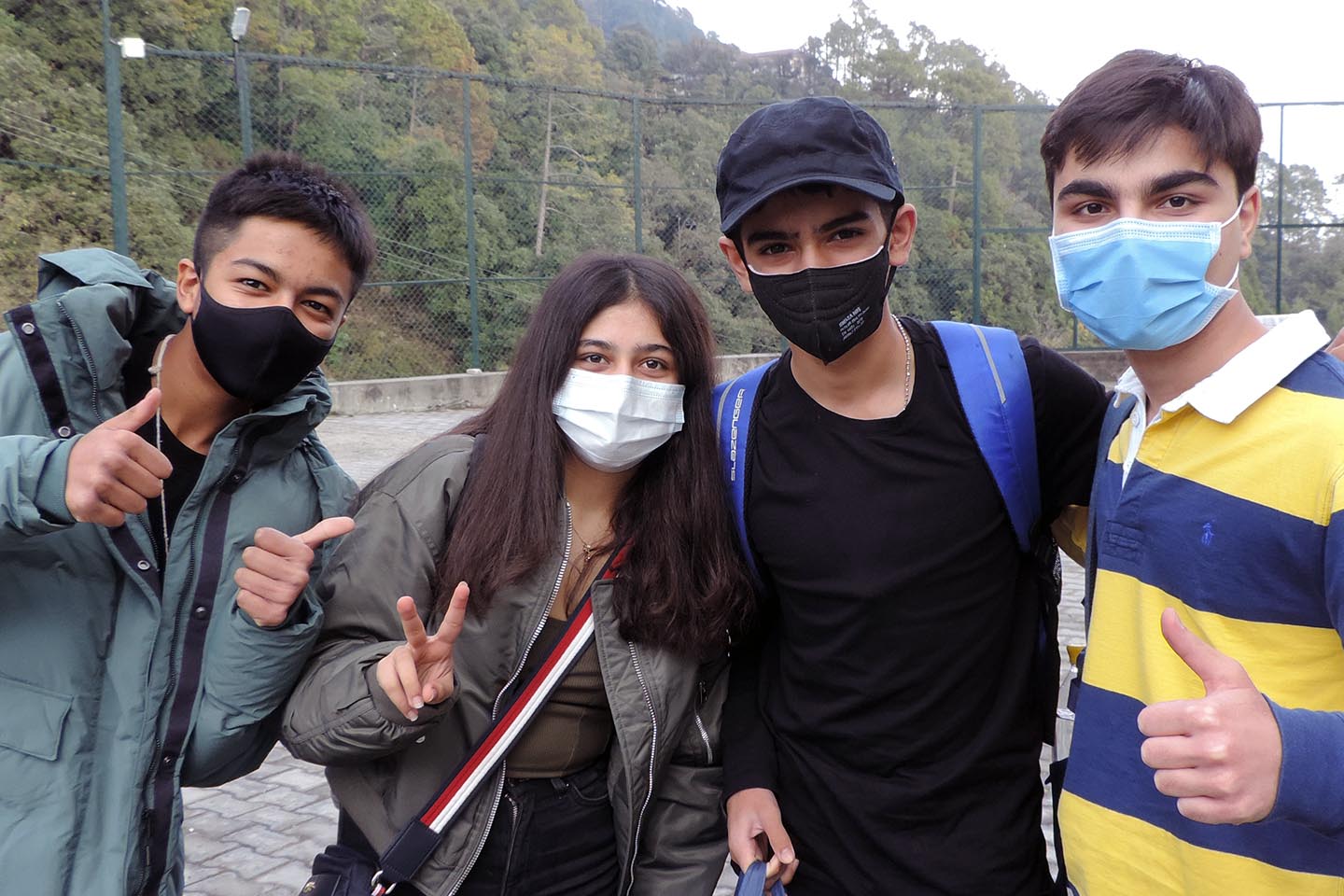
05 Mar Helping students adjust to the new normal
Next Friday, it will be two years since we first had to close the campus to students and pivot to distance learning. The transition from the classroom to virtual spaces was immediate and exasperated by global uncertainty. The change in circumstances was also very apparent. Students and educators who were together in person just two weeks before, suddenly found themselves joining classes from home, while having to navigate the medium and mechanisms of learning online.From Monday, we return to the classrooms and what we hope will be a major step back to normality. Some students have been on campus during both semesters last year, but not in the numbers we will see at school next week. As we move forward, we need to be mindful that for many of our students, what is ‘normal’ has been shaped by their experience of the last two years. Their perception may bear little or no resemblance to pre-pandemic Woodstock School life. This is particularly true for students who join us on campus for the first time this semester, but for us all it has been a long, hard time since the halcyon days before Covid added its complexity to our lives. I joined Woodstock in July 2019, so have yet to experience the entirety of a ‘normal’ Spring Semester and the build-up to an in-person Graduation myself.It is important that we, as parents and educators, acknowledge that some role adjustment will be required by our students as they transition from distance learning back to the classrooms. This adjustment is likely to transpire in many ways for different students.
We know that, with the best will in the world, distance learning is fraught with potential distractions – a message coming through on the phone, something interesting on another browser tab, or grabbing a snack to graze on during classes. Students will have to readjust to concentrating for the duration of each lesson, and saving the distractions for break times and after-school hours.
For some, there may be an element of culture shock, as they transition from the relative isolation of a family group to living in a busy, bustling community of more than 600 students, dorm parents and teachers. Having adapted to the relative solitude of the past two years, it may take time to rebuild their interpersonal social skills. Even something as intuitive as reading body language is a skill that may need to be worked on after so long interacting with their peers and teachers through a screen.Some students may struggle to manage their new-found self-autonomy, while others may lament their loss of freedom as they have to conform to rules and protocols, and may even find themselves impatient with certain constraints of being in a boarding school context.Maintaining focus is something we expect to be a challenge for many students. We know that, with the best will in the world, distance learning is fraught with potential distractions – a message coming through on the phone, something interesting on another browser tab, or grabbing a snack to graze on during classes. Students will have to readjust to concentrating for the duration of each lesson, and saving the distractions for break times and after-school hours.All this is a natural part of the readjustment process, and will fall into place over time. Help is at hand, as our dorm parents, teachers and personal counselling team are aware and ready to support students with any ‘teething problems’ as they adapt to their new norms. We as adults are not immune to the same readjustment we expect students to experience, and have great empathy for their situation. We will work with them as they face the challenges of role adjustment, to make the process of transition as seamless and comfortable as we can.A big help is that we all want this. While subjective, the new normal will almost universally be preferable to the experience thrust on us by the pandemic. There is much to look forward to and we have developed some new initiatives, particularly in the outdoors space, which we hope will be particularly rewarding to students. We are ready to give students the time, space and support they need as they find their feet in their new reality.
Dr Craig Cook, Principal






No Comments